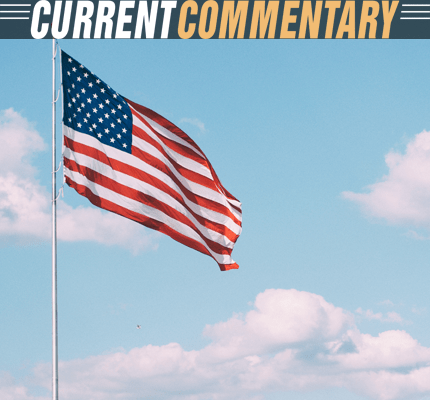
Anthems, Anger, and Football
By Sarah K. Fields, J.D., Ph.D.
During the first few games of the National Football League’s 2016 preseason, Colin Kaepernick, who is bi-racial and was then a quarterback for the San Francisco 49ers, quietly sat during the national anthem. At first, no one noticed. After the cameras spotted him sitting before the third game, Kaepernick explained, “I am not going to stand up to show pride in a flag for a country that oppresses black people and people of color…. To me, this is bigger than football and it would be selfish on my part to look the other way. There are bodies in the street and people getting paid leave and getting away with murder.”[i] He was responding, in a quiet but provocative manner, to a long history of police violence against people of color.
Before the fourth preseason game, he and African-American teammate Eric Reid met with a white retired Green Beret who had played in the NFL, and together they decided that kneeling during the anthem would be more appropriate to indicate their protest was not against the military, which many Americans view the flag and anthem as representing. Reid would later explain, “We chose to kneel because it’s a respectful gesture. I remember thinking our posture was like a flag flown at half-mast to mark a tragedy.”[ii] The two were joined by other players across other leagues, and debate raged among sports fans about the appropriateness of the protest. At the end of the 2016 season, Kaepernic opted out of his contract, and no team offered him a job.
Even though Kaepernick was out of the league, other football players continued his protest into the 2017 season. Sports fans continued to debate the protests, but the national conversation blew up entirely following a political rally in Alabama, where President Donald Trump criticized those who had failed to stand during the anthem. At the rally, President Trump said, “Wouldn't you love to see one of these NFL owners, when somebody disrespects our flag, to say, 'Get that son of a b---- off the field right now. Out. He's fired! He's fired!'”[iii] The crowd at the rally roared their approval, and the NFL responded with unity, at least in regard to their irritation at the President inserting himself into the controversy and telling the league what to do. The entire country seemed to have an opinion about the protests, the President’s speech, and subsequent presidential tweets. The national anthems at games were televised for the first time in ages, and everyone waited to see what teams would do in the following weeks.

What the nation stopped talking about was the latest Senate attempt to repeal the Affordable Care Act (aka Obamacare), the bellicose exchanges between nuclear North Korea and President Trump, and Hurricane Maria’s devastating strike on Puerto Rico, which had left the entire island without power. Even Trump supporters who had been frustrated by the President’s negotiations with Democrats with regard to the debt ceiling and other matters, and who might have been concerned that the President’s endorsed candidate for the Alabama Senate seat lost the primary, were sidetracked. Whether President Trump’s statements were intended to be a distraction or they simply had that effect, he shifted national discourse away from matters of vital significance to a debate over a symbol.
The country went down the emotionally easy and intellectually empty road of rage: people could be angry at the players or they could be angry at the President, but they were more often angry rather than thoughtfully critical. For some, being angry about the perceived lack of respect for the anthem shown by men being paid large sums of money to play a game was easier than discussing the complicated image of predominantly white owners standing literally or metaphorically with the predominantly black men who were risking their bodies and brains for profit. Being angry at Seahawks player Michael Bennett for sitting on the bench during the anthem was simpler than considering the circumstances that had led to his detention by police for running away from apparent gunfire. Even being angry with the President was perhaps simpler than engaging the deeper conversation about how to actually rectify inequalities in the country and what sacrifices that might require. Emily Winderman has warned that “rhetoric generating public anger, while potent for energizing collective urgency, is not singly sufficient in crafting the infrastructure for better worlds.”[iv] The challenge for sports fans, and indeed for all Americans, is getting past the anger and moving toward a constructive discussion about race in America.
On the one hand, the sidelines of a sporting event seem an odd place for a national conversation on racial inequality and institutionalized racism to originate. On the other hand, Jackson B. Miller, among others, has argued that sport is a cultural performance that can “create culturally shared beliefs and values.”[v] Indeed, the performance of the national anthem and the overt displays of patriotism at NFL games are part of the overall events, even if the Department of Defense did pay the NFL millions of dollars to interweave support for the military into the game.[vi] Americans care a great deal about sport: more people watch NFL games on television than anything else. Sport scholars frequently assert that sport is a microcosm of society and have cited the racial integration of sports teams as a step, albeit a slow one, toward a more integrated America. In sports’ brightest moments, fans can see people of multiple races working together toward the common goal of victory, and in moments of defeat as well as victory, diverse fans unite in support of their team. Assertions that sport is purely a meritocracy are naïve (otherwise, Kaepernick would still be in the league), but sport is a site for optimism because success does require teamwork. Sport can, at its best, bring out the best in people. Football, thus, might be the perfect place to begin a national conversation on race and inequality.
References
- [i] Steve Wyche, “Colin Kaepernick explains why he sat during national anthem,” August 27, 2016, nfl.com, http://www.nfl.com/news/story/0ap3000000691077/article/colin-kaepernick-explains-why-he-sat-during-national-anthem.
- [ii] Eric Reid, “Why Colin Kaepernick and I decided to take a knee,” September 25, 2017, New York Times, https://www.nytimes.com/2017/09/25/opinion/colin-kaepernick-football-protests.html?_r=0.
- [iii] Kevin Seifert, “President Trump criticizes NFL player protests, says fans should exit stadiums,” ESPN.com, September 23, 2017, http://www.espn.com/nfl/story/_/id/20788354/president-donald-trump-speaks-nfl-player-protests.
- [iv] Emily Winderman, “S(anger) goes postal in The Woman Rebel: Angry rhetoric as a collectivizing moral emotion,” Rhetoric and Public Affairs 17(3) (2014), 410.
- [v] Jackson B. Miller, “’Indians,’ ‘Braves,’ and ‘Redskins’: A performative struggle for control of an image,” Quarterly Journal of Speech 85 (1999): 188-202.
- [vi] Melanie Schmitz, “How the NFL sold patriotism to the US military for millions,” ThinkProgress.com, September 25, 2017, https://thinkprogress.org/nfl-dod-national-anthem-6f682cebc7cd/.
Media Resources: Issue Experts
- Samuel Jay, Metropolitan State University of Denver
- Michael L. Butterworth, The University of Texas at Austin


